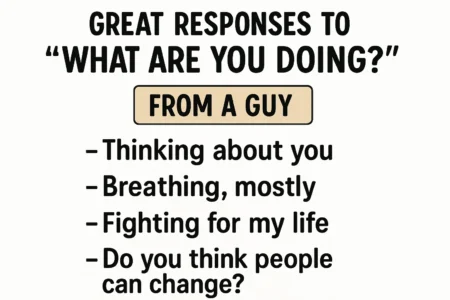The world just stops.
It’s that single, gut-punch moment. The discovery. Maybe it was a text that flashed on the screen. An email left open. Or maybe it was just that sick, twisting feeling in your stomach that finally, horribly, clicked into place. However you found out, the result is the same. The one person you trusted most in the world has betrayed you.
Your reality shatters.
After the shock, the tears, and the white-hot rage, one single, agonizing question starts to bubble up.
Now what?
Your heart is a warzone. One side screams, “Get out! Don’t you dare look back!” The other side just whispers, “But I still love them.” And that’s what leads you here, to this impossible crossroad, staring down the dilemma of giving a second chance for a cheater. But is it worth it? Can a relationship actually survive this? Or are you just signing up for round two of the worst pain of your life?
This isn’t a simple yes-or-no question. God, I wish it were. The path of reconciliation is a brutal one. It’s complex, painful, and deeply, deeply personal. It demands a painful excavation of your relationship and yourselves. Before you make a single move, let’s walk through what that path actually looks like.
More in Niche, Social, and Spiritual Category
Key Takeaways
- Remorse vs. Regret: There’s a Grand Canyon-sized difference between a partner who is devastated by your pain (remorse) and one who is just upset they got caught (regret). Your decision hangs on this.
- A Second Chance Is Not a Reset Button: Giving a second chance doesn’t mean you go back to how things were. That’s over. The old relationship is gone. You must, instead, build an entirely new one, and that process is slow and grueling.
- The “Why” Matters… A Lot: Understanding why the cheating happened isn’t about excusing it. Ever. But it’s critical for figuring out the risk of it happening again.
- Red Flags Are Deal-Breakers: Blaming you, minimizing the act, or keeping any contact with the affair partner aren’t just warnings. They are giant, flashing signs telling you to leave.
- Your Healing Is the Priority: Whether you stay or go, your number one job is to heal from this trauma. Sometimes, that healing can happen with your partner. And sometimes, it can only happen without them.
The “Why” That Haunts You: Why Did They Cheat in the First Place?
This is the question that loops. And loops. And loops. We torture ourselves with it. “Was I not good enough?” “What do they have that I don’t?” “How could they do this to us?”
It feels like an indictment of you, but the “why” is almost never about the person who was cheated on. It’s about the cheater.
People cheat for a whole constellation of reasons. None of them are good, but all of them start inside themselves. Maybe they’re insecure and needed an ego boost. Maybe they’re commitment-phobic and panicked, using self-sabotage to blow up something good because it got too real. Sometimes, it’s a symptom of a deeper, darker problem like depression, addiction, or unresolved trauma from their past. And yes, sometimes the relationship itself was deeply broken. But instead of talking about it or leaving, they took the coward’s way out.
Understanding the “why” is not about finding an excuse. Never. It’s about diagnostics. Is this a “why” that can be fixed? Was it a one-time perfect storm of terrible judgment from a person who is, otherwise, a good human? Or is the “why” rooted in a deep character flaw, like narcissism or a chronic inability to tell the truth?
The answer to that tells you a whole lot about your future.
Are They Genuinely Sorry, or Just Sorry They Got Caught?
This is it. This is the most important question you need to answer. Your ability to even think about a second chance for a cheater hangs entirely on their reaction after they’re caught.
Lots of partners will cry. They’ll beg. They’ll promise the moon and the stars. They’ll swear it will never happen again.
This is regret.
It’s a performance driven by the fear of losing their house, their family, their reputation. It’s all about their loss.
True, genuine remorse looks and feels completely different. Remorse is quiet. It’s heavy. It’s not defensive. Someone filled with remorse is horrified, not because they are in trouble, but because they see the devastating, shattering pain they have inflicted on you. They don’t make excuses. They don’t minimize. They don’t say, “But we were fighting so much.”
They just say, “I did this. It was all me. And I have broken the person I love most.”
How Can You Tell the Difference Between Real Remorse and Damage Control?
Here’s the thing: you have to watch their actions, not their words. Words are cheap. Promises flow like water when someone is desperate. Look for these signs of true remorse:
- Full, Proactive Transparency: They don’t just agree to cut off the affair partner; they do it immediately, right in front of you. They offer you their passwords, their phone, their location—not because you demanded it, but because they have absolutely nothing left to hide.
- They Absorb Your Anger: They let you be sad. They let you be hysterical. They let you ask the same question a hundred times at 3 AM. They don’t sigh and say, “Are we still talking about this?” They just sit there and take it, because they know you have earned every second of your pain.
- They Take Full Responsibility: There is no “but.” There is no blame-shifting. They don’t point to problems in the relationship to justify their choices. They own 100% of their decision.
- They Get Help Proactively: They don’t just “agree” to therapy. They are the ones making the appointment. They are the ones finding a therapist who specializes in infidelity. They are doing the work to figure out their own “why.”
If, on the other hand, you’re met with defensiveness, “trickle-truthing,” or any kind of gaslighting… you don’t have a partner in recovery. You have a partner in damage control.
My Own Story: The “Trickle-Truth” That Broke Us
I’ve been in your shoes. Years ago, I caught a long-term boyfriend in a lie that unraveled into a full-blown affair. His first reaction was to lie. Then, when I presented evidence, he admitted to part of it. Just the texts. Then, just the one kiss. Over the next two weeks, the truth came out in painful, agonizing drips. He “forgot” to mention they had met up. He “forgot” to mention it had been going on for months.
Here’s what I learned: The “trickle-truth” is a second, profound betrayal. It’s not just the original affair; it’s the continued, active deception right to your face, even after being caught. He was actively choosing to lie to me, over and over, to protect himself. It taught me that he wasn’t sorry he hurt me; he was just sorry I had evidence. A second chance was impossible because the lies never stopped.
What Does a “Second Chance” Even Look Like in Practice?
Let’s get one thing straight. Giving a second chance is not a “get out of jail free” card. It’s not wiping the slate clean. It’s not a return to the “before.”
The relationship you had before the affair is dead. It was killed by the infidelity.
A second chance means you are both, clear-eyed and exhausted, agreeing to see if you can build an entirely new relationship from the rubble of the old one. This new relationship (Relationship 2.0) will be built on a foundation of brutal honesty and the painful memory of this betrayal.
It’s a long, slow, and ugly process.
It means having the same fight 100 times. It means you, the betrayed, will have days where you’re fine, and then a song on the radio or a smell will trigger you, and you’ll be thrown right back into Day One of the trauma. And it requires your partner to show up for that, every single time, with patience and remorse, for as long as it takes.
That could be years.
Can You Really Ever Trust Them Again?
This is the million-dollar question, isn’t it?
The simple answer is no.
You will never, ever trust them in that same blind, innocent, fairytale way you did before. That trust is gone forever. And honestly? That might not be a bad thing. That kind of naive trust is what makes a betrayal so devastating.
The trust you can build is a different kind. It’s a more mature, resilient, “eyes wide open” trust. It’s not built on a romantic assumption of “they would never.” It’s built on a mountain of evidence, acquired over a long, long time, that they are doing the work. It’s a trust earned through their consistent, transparent actions. You trust them not because they’re perfect, but because you have seen them at their absolute worst, you’ve seen them “fix” it, and you see them actively choosing to be a trustworthy person today.
It’s a “we survived that fire and are still here” kind of trust. For some, it can be even stronger than the original. But it takes an incredible amount of work to get there.
What Actions Prove They’re Worthy of Trust?
This is where the rubber meets the road. If they are serious about earning a second chance, the burden is 100% on them. They must become a “safe” partner. This means:
- Zero Contact: The affair partner is blocked, deleted, and gone from their life, period. Any “I need to get closure” or “I just want to tell them off” is a lie. It’s a non-negotiable.
- An Open-Book Policy: This is temporary, but it’s necessary. They must be willing to live with total transparency. This means you can look at their phone, their email, their social media, their location, at any time, without them getting defensive. The goal is that, over time, you’ll feel the need to check less and less, until you don’t feel the need at all.
- Showing Up, Consistently: They call when they say they will. They come home when they say they will. They are where they say they are. They become radically reliable, rebuilding your sense of safety one tiny, boring, consistent action at a time.
When Is Giving a Second Chance for a Cheater a Terrible Idea?
Sometimes, the answer is a clear and resounding “no.” Giving a second chance to the wrong person or in the wrong circumstances isn’t just a bad idea; it’s a guarantee of future pain. You are just signing up for Round Two.
Run—do not walk—away if you see these red flags.
Is This a Pattern or a Single, Horrible Mistake?
You have to be brutally honest with yourself here. Was this a genuine, out-of-character lapse in judgment from a person who is otherwise loving and stable? Or… have there been other “friendships” that were a little too close? A history of “forgetting” to mention things? A pattern of lying?
If this is their first time getting caught, it’s often not their first time. A one-time mistake is one thing. A serial cheater is another. A serial cheater has a character flaw, not a judgment flaw. You cannot fix them. They will not change for you. They will only get better at hiding it.
Do not give a second chance to a pattern.
Are They Blaming You for the Affair?
This is the biggest red flag of all. It can be overt (“You’re always so tired,” “We never have sex,” “You’ve gained weight”). It can also be subtle (“I was just so lonely,” “You’re always focused on the kids”).
Let me be crystal clear.
Nothing you did, or did not do, made them cheat.
They could have been unhappy. They could have been lonely. They could have felt ignored. A healthy, mature adult communicates those feelings. They ask for couples therapy. They initiate a hard conversation. Or, they break up with you. They do not go outside the relationship and then blame you for their choices.
This is classic gaslighting. It’s the mark of someone who has zero remorse and will absolutely do it again.
Do They Show Contempt or Defensiveness?
When you cry, do they roll their eyes? When you ask for details, do they sigh and say, “This again?” Do they get angry at you for being angry at them?
This is contempt. It’s a sign that they secretly (or not-so-secretly) believe they are a victim in this, too. They’re annoyed that their life is hard now. They’re impatient with your healing process. This person is not a candidate for reconciliation. They are a candidate for your “blocked” list.
Let’s Be Honest: What About Your Needs?
For this whole time, we’ve been focused on them. Are they sorry? Can they be trusted? What will they do?
Now, let’s turn the camera. What about you?
You are the one who has been traumatized. Your body, mind, and spirit are in a state of shock. You’re the one who has to live with the intrusive thoughts, the flashbacks, the shattered self-esteem. Your only job right now is to be kind to yourself and figure out what you need to heal.
Can You Forgive? And What Does Forgiveness Even Mean?
People mix up forgiveness and reconciliation all the time. They are two completely different things.
Reconciliation is a two-person job. It’s the process of rebuilding a relationship. It requires both of you to be 100% committed.
Forgiveness is a one-person job. It’s just for you. Forgiveness is not saying, “What you did was okay.” It’s not saying, “I’m not in pain anymore.” It is simply the act of saying, “I am no longer going to let what you did poison my future. I am cutting the cord of resentment so I can be free.”
You can forgive someone and still choose to never see them again. In fact, many people find that forgiveness only comes after they have left the relationship and feel safe. Don’t let anyone (especially the cheater) rush you into forgiveness. It’s not a tool for them to feel better. It’s a gift you give yourself, when and if you are ready.
Are You Staying for the Right Reasons?
This is another moment for brutal honesty. If you decide to stay, why are you staying?
The only “right” reason to stay is because you genuinely believe the person who hurt you is deeply remorseful, capable of change, and that the relationship, once rebuilt, is something you truly want.
These are the wrong reasons to stay:
- Fear: Fear of being alone. Fear of what people will think. Fear of starting over.
- For the Kids: Staying in a cold, resentful, or broken home is worse for children than a clean break.
- Financial Dependence: This is a trap, not a reason. It’s a problem to be solved, not a life sentence.
- Sunk-Cost Fallacy: “But we’ve been together for 10 years…” You’re about to turn that 10 years into 11 years of misery.
I’ve watched this play out. My good friend Sarah stayed with her husband after she caught him. “For the kids,” she said. Her two kids grew up walking on eggshells in a house with zero warmth, zero affection, and a thick fog of resentment. When they were in college, they both told her, “Mom, we always knew. We wished you had left.” She wasted 15 years of her life trying to “save” a family that had been broken from the start, only to find that everyone, including her kids, had just been waiting for it to be over.
If You Do Decide to Try, What’s the Game Plan?
Okay. So you’ve looked at all the red flags. You’ve seen genuine, gut-wrenching remorse. You believe the “why” was a fixable, one-time error. You are both, God help you, going to try.
You need a plan. You cannot “wing” this.
Why Individual Therapy Is Non-Negotiable (For Both of You)
Notice I said individual therapy first. You are not ready for couples counseling. Not yet.
- You need your own therapist: You need a safe, private space to be a complete mess. You need a professional to help you process the trauma, rebuild your shattered self-esteem, and decide what you want, separate from your partner’s wants.
- They need their own therapist: They need a space to figure out why they made this catastrophic choice. What broken part of them sought this out? What boundaries did they lack? They need to do this work alone. It’s not your job to be their therapist.
The Hard Road of Couples Counseling
After—and only after—you’ve both been in individual therapy for a while, you can then consider couples counseling. This is not a place to re-hash the details of the affair. This is a place to build Relationship 2.0. A good therapist, like those trained at The Gottman Institute, will not let you just scream at each other. They will give you tools to communicate, to fight fairly, and to learn how to be “safe” for each other again.
Setting Boundaries That Aren’t Up for Debate
You are in charge of your own safety now. This means setting hard, clear boundaries. These are not requests; they are conditions for your continued presence.
- “You will not have any contact with that person again. If they contact you, you will show me immediately.”
- “You will answer any question I have about the affair, even if I’ve asked it before.” (This one can be controversial, but in the early days, it’s often necessary for the betrayed partner to get all the information to stop their mind from “filling in the blanks” with even worse scenarios.)
- “You will be where you say you are.”
- “You will go to therapy.”
These aren’t punishments. They are the scaffolding required to rebuild a sense of safety.
What If You Give a Second Chance… and They Do It Again?
This is the biggest fear, isn’t it? The fear that you’ll go through all this pain, all this work, all this therapy… and they’ll just betray you again.
It happens. It happens a lot.
And if it does, you will be destroyed all over again. But here’s the one, small, cold comfort you will have: You will know you did everything you could. You will know you gave it your all. You will know, with 100% certainty, that the problem is not and never was you. It is them. Their brokenness is not your responsibility to fix.
A second betrayal is often the most painful, but also the most final. It’s the moment all the “what ifs” die. It’s the end of the debate. It’s the grim, terrible closure you needed all along.
My Second Story: When a Second Chance Actually Worked
I told you about the time it failed. It’s only fair I tell you about the time it worked.
I’m one of those statistics. My husband—the man I am married to today, the father of my children—cheated on me. This was over a decade ago, early in our marriage. And it was just as devastating as you can imagine. The “why” was a toxic mix of his own deep insecurity, a stressful new job, and a stupid, alcohol-fueled mistake.
I almost left. I had my bag packed.
What stopped me? He didn’t just show regret; he showed a remorse so profound it was terrifying. He was shattered by what he had done to me. He didn’t trickle-truth. He told me everything, once, in one awful, gut-wrenching confession. And then, he got to work. He started individual therapy. He cut off the person (a coworker) immediately and quit that job within a month, taking a pay cut. He gave me every password. He sat on the floor and just let me scream at him for an entire night.
For the next year, he earned back my trust. One millimeter at a time. It was ugly. We had the screaming matches. We had the awful, silent nights. We had the therapy sessions that left us both drained. He never once got defensive. He never once said, “Are you over this yet?”
He just kept showing up.
It’s been 10 years. Our marriage is not what it was. It’s something different. It’s stronger. The trust I have for him now isn’t the naive trust I had then. It’s a trust that is forged in fire. I know him, and he knows me, in a way that few couples do. We’ve seen the absolute worst of each other, and we are still here.
It can work. But it is the hardest work you will ever do.
So, Is It Worth It? The Final, Complicated Answer
Giving a second chance for a cheater is not “worth it” if they are a serial liar, a narcissist, or someone who blames you for their own failures. It’s not worth it if they are only offering you regret instead of remorse. It’s not worth it if you know, in your gut, that you will never be able to look at them without resentment.
But it might be worth it.
It might be worth it if the person who broke your heart is also the person who is desperately and actively trying to help you put it back together. It might be worth it if they are willing to go to hell and back to fix the broken “why” inside themselves. It might be worth it if the love, underneath all this pain, is still real, and you are both willing to do the excruciating work of building a new, more honest life from the ashes.
There is no right answer. There is only your answer. Whatever you choose, stay or go, make the choice that leads you closer to peace.
FAQ – Second Chance for a Cheater
What are the key signs of genuine remorse after infidelity?
Genuine remorse is characterized by full, proactive transparency, absorbing your anger without defensiveness, taking full responsibility without blame-shifting, and proactively seeking help such as therapy.
How can I distinguish between remorse and regret in a partner who cheated?
Look for actions over words; true remorse involves consistent, transparent actions like sharing passwords, accepting responsibility, and making efforts to rebuild trust, whereas regret is often superficial and driven by fear of losing you.
What does rebuilding trust after infidelity practically involve?
It requires the partner to demonstrate reliability through consistent actions, complete transparency, zero contact with the affair partner, honesty, and active participation in therapy, to gradually rebuild a more mature and resilient trust.
When is giving a second chance in a relationship a bad idea?
It is a bad idea if the partner has a pattern of cheating, blames you, shows contempt or defensiveness, or if the betrayal was a one-time mistake with genuine remorse. Red flags also include ongoing deception or toxic behaviors.
What should I consider about my own needs and feelings when deciding to forgive or stay?
Your main focus should be on healing and what you need to recover from trauma, regardless of forgiveness. Forgiveness is for your peace, not a requirement; your reasons for staying should be based on genuine remorse and a sincere commitment to change.





